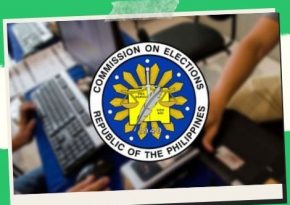
According to a study, Facebook users consume more bogus news than Twitter and other social media site users.
A recent study indicated that heavy Facebook users were much more likely to ingest fake news than users of Twitter or other social media sites. Facebook, it turns out, wins the cake when it comes to election misinformation on social media.
Facebook users read the most bogus news about the 2020 U.S. presidential election, according to a study published earlier this month in the peer-reviewed journal Government Information Quarterly, and they expressed the greatest fear about incorrect vote tallying.
They also discovered that a person’s amount of fake news consumption, not how they voted, was the main determinant of whether they reported being skeptical about the election outcomes.
The study claims that a major issue with relying on social media for news is that these platforms have algorithms made to keep you scrolling and interested, which means that they’re likely to keep presenting you with the same content you’re interested in and make it more difficult to escape a disinformation hole once you’ve fallen into one.
According to Robert Crossler, study co-author and an associate professor in the WSU Carson College of Business, “what we saw in this study is that if you aren’t careful, the bias that you bring into your news consumption can be absolutely confirmed and supported if you are in a place like Facebook where the algorithms feed into that.”
According to the survey, people who predominantly used news websites to access their news about the 2020 election were less inclined to trust fake news and more likely to think the election actually went as expected.
The U.S. The election of President Joseph Biden in 2020 was accompanied by unsubstantiated claims made by former U.S. President Donald Trump claimed that the election had been rigged against him and that numerous votes had been disregarded. After the election, suspicions of voter fraud involving mail-in votes and Dominion voting machines circulated, however, none of these allegations hold up in court, and few legal experts backed this view.
The tale nonetheless continued to gain widespread social media traction despite the lack of factual backing.
Although the ability of Facebook and other social media platforms to spread misinformation and false news is not new, it is more difficult to quantify how exposure to fake news affects a person’s perspective of reality.
The Washington State University-led study created three surveys to better understand how each factor—political affiliation, false news consumption, and voting method—affected a person’s perspective of the election.
In the study, “fake news” was defined as publications and websites disseminating untrue information that could be independently verified, as opposed to articles or websites disseminating untrue information based on political perceptions.
Prior to the election, the first two polls were distributed to various voter groups and both asked respondents to respond to hypothetical scenarios.
The first proposed a scenario in which the voter would cast a ballot either in person, by mail, or online. The participant was questioned about their level of anxiety about the accuracy of the vote count and how much news they consumed from various news sources after reading the scenario of how they would vote.
According to the second survey, every voter would have to cast a mail-in ballot, which would then be tabulated either by a government official, a third party, or a voting machine. They were subsequently questioned once more about their worries regarding the counting of votes and their news sources.
After the election, the third survey was distributed to a group of actual voters. Following the completion of their voting method information, participants responded to the identical survey questions as the previous two. The amount of news they obtained via direct navigation, Twitter, Facebook, and other social media sites was then disclosed.
The voting method, such as whether people cast their ballots in person or by mail, had no discernible effect on the likelihood that participants would worry that their votes would not be accurately counted, which shocked the researchers.
Instead, people were more likely to express strong concern about votes not being tallied the more they admitted to getting their news from social media, especially Facebook.
This suggested to researchers that sources spreading these anxieties were being elevated on Facebook more so than on other social media platforms.
Facebook isn’t purposefully pushing users in that direction, but Stachofsky believes that something about the way that algorithm is set up in comparison to other algorithms is pushing users in that direction. As we searched for the websites that Facebook was sending users to via a web browser, we were surprised by how difficult it was to find them. The study demonstrates that not all social media sites are created equal when it comes to disseminating deliberately false material.
In contrast to earlier research, this one revealed no age group to be more likely to read fake news, which raises the possibility that more young adults than previously believed are consuming fake news.
The partisan divide in the U.S. is growing people’s mistrust of mainstream media, and the authors stated that more research is needed to understand how disinformation spreads and how it may be stopped. They are hopeful that this study would prompt social media platforms to consider how their algorithms affect their users more carefully.
The idea that people should be encouraged to be news- or information-literate is supported by this, according to Crossler. “Right now, we are discussing the elections, but there are many other problems, like the war in Ukraine, that misinformation about might be destructive as well as confusing.
Save/Share this story with QR CODE
Disclaimer
This article is for informational purposes only and does not constitute endorsement of any specific technologies or methodologies and financial advice or endorsement of any specific products or services.
 Need to get in touch?
Need to get in touch?

We appreciate your reading. 
1.) 

Your DONATION will be used to fund and maintain NEXTGENDAY.com
Subscribers in the Philippines can make donations to mobile number 0917 906 3081, thru GCash.
3.) 
4.) 
AFFILIATE PARTNERS

World Class Nutritional Supplements - Buy Highest Quality Products, Purest Most Healthy Ingredients, Direct to your Door! Up to 90% OFF.
Join LiveGood Today - A company created to satisfy the world's most demanding leaders and entrepreneurs, with the best compensation plan today.

 Business, Finance & Technology
Business, Finance & Technology





